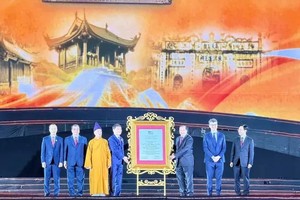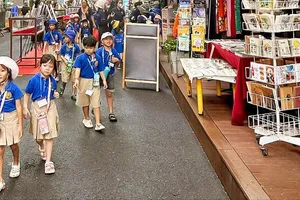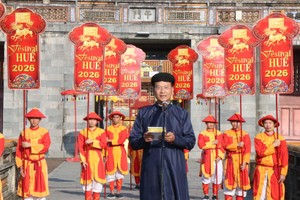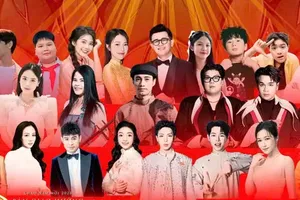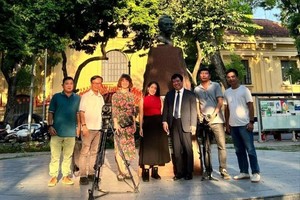
Composers and singers have notable influence on the young generation
At the November 13 roundtable “Roles and Responsibilities of Music Practitioners in Ho Chi Minh City” organized by the HCMC Music Association, delegates raised concerns over an emerging trend in which many young composers and singers appear to be neglecting their social responsibility, particularly toward young listeners.
At the event, participants noted that cultural distortion, particularly in music, is not a new issue. As Vietnam entered a market economy, commercial music quickly surfaced. When the internet later arrived and expanded, alongside many positive developments came serious problems, most notably the widespread disorder of music content online.
Despite numerous articles, studies, and critiques highlighting these concerns, violations of Vietnamese cultural values and moral traditions in music still occur frequently, influencing young people’s viewpoints, perceptions, and aesthetic judgment.
In this context, arts education in general—and music education in particular—plays a crucial role in the holistic development of children and adolescents.
Through music, children learn to express emotions, improve memory, develop language skills, and enhance creative thinking. Music also helps shape a healthy worldview, teaching children to distinguish between beauty and vulgarity, right and wrong; thereby contributing to the development of positive life values.
“Exposure to distorted musical content can seriously harm a child’s emotional and psychological development, making them more easily agitated, withdrawn, prematurely ‘adult-like,’ or emotionally unstable,” said Phan Quoc Anh, Associate Professor and composer at the University of Culture Ho Chi Minh City.
Composer Nguyen Van Chung emphasized: “A song about parents evokes beautiful family memories and nurtures affection. A song about the homeland inspires national pride and encourages people to work harder and contribute to the country. In contrast, songs with distorted, violent, or obscene content draw listeners toward negativity, promoting reckless lifestyles, encouraging disrespect for others, damaging oneself, disregarding social ethics, and even risking violations of the law.”
Coordinated measures are needed
To address current distortions in the music environment—from composition to performance and training—delegates stressed the need for clear, comprehensive solutions. Director and Meritorious Artist Huynh Cong Duan suggested that the Ministry of Culture, Sports and Tourism should complete the Performing Arts Law with specific regulations on lyrics, costumes, and what constitutes violations of cultural norms or vulgar content especially wordplay, parody, or hidden implications that mislead listeners.
Moreover, he said that new technologies such as artificial intelligence (AI) should be applied to assist with faster and more efficient monitoring of digital music products, preventing inappropriate content from spreading widely before detection.
Alongside enforcement measures, many delegates noted that punitive actions alone are merely “treating the symptoms.” To build a truly healthy and thriving music environment, it is essential to encourage and support the creation of high-quality musical works. Expanding arts and music education in schools is also crucial.
For example, increasing lessons in folk songs and traditional music can help students appreciate the beauty of art and build a personal “immunity system” against music that violates cultural norms or uses inappropriate lyrics.
Composer Nguyen Van Chung added, “For musicians, participating in professional associations and artistic organizations is very important. These platforms allow artists to meet senior colleagues, interact with peers, and from there strengthen their creative awareness and sense of social responsibility.”
For a musician, once they recognize their influence, responsibility must be placed at the forefront of creative work. No one forbids an author from writing about hidden corners, negativity, or the darker sides of society, life, or love. The question is how to use language and messages so that listeners feel empathy, comfort, find consolation, and discover solutions that lead to a better life. That is the mark of a true artist, said director and Meritorious Artist Huynh Cong Duan.







